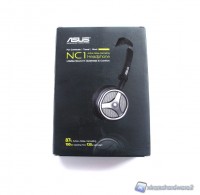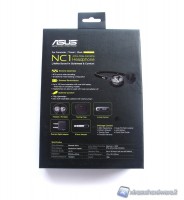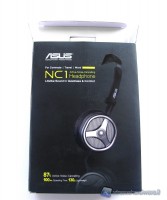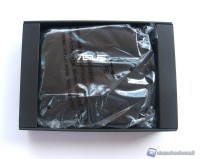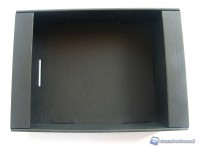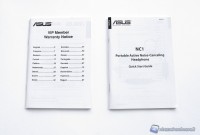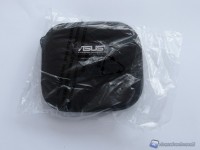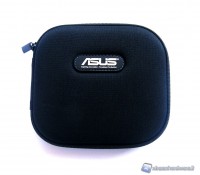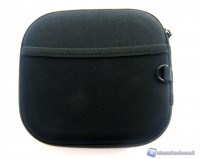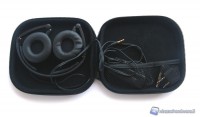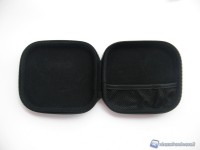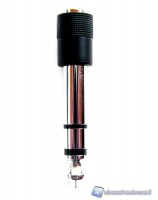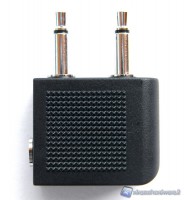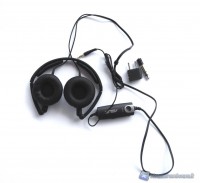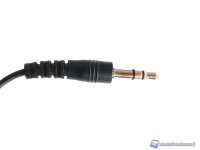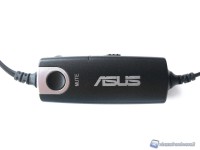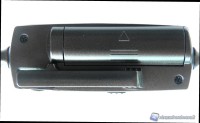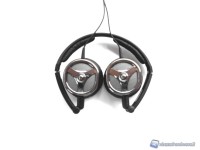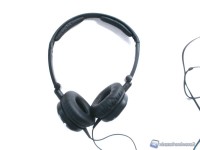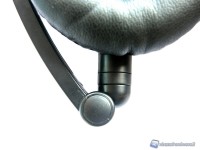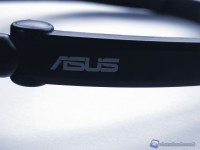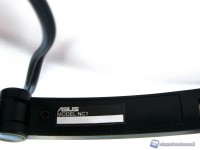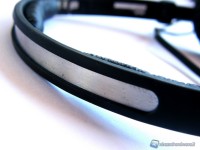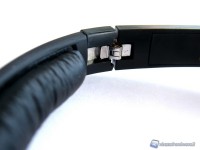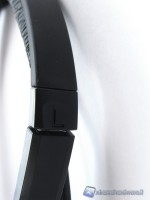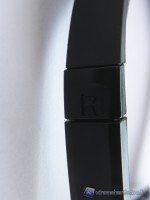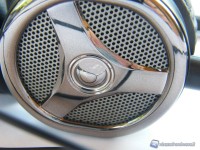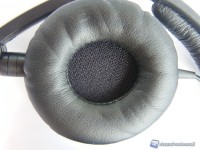Packaging and bundle
Package Contents:
- Asus NC1 headsets
- Protective case for transporting
- Two-pin adapter to use headphones on the plane
- 6.3 mm adapter
- User Guide
- AAA battery included
The headphones come down to us in a very compact package, which we found to be extremely tidy. We note immediately the salient features of the product, shown in white and bright yellow on it, on all sides. The image of the headphones is glossy black, so as to shop up the background, also black, but dull.
Opened the package, we notice the presence of an additional black box, which contains inside a case that says "ASUS", covered with a protective coating.
Inside there is also printed material, consisting of a quick installation guide and details of the Asus warranty.
After removing the case from the box and removing the plastic wrap, we can see that it contains the NC1 headphones and the two adapters. The opening of the case happens thanks to a hinge and it seems that everything is organized for maximum convenience in transportation.
The included adapters are a 6.5-mm one, for use on devices that need jacks of this size, and a two-pin one, for the use of headphones on the plane. Surely they have watched the versatility to provide a range of uses that were as large as possible.
We come then to analyze the headphones themselves. They show since the first sight extremely compact, so to maximize the portability. This is possible thanks to two points of connection to the brace, allowing the bow to fall back into the same ear, so as to minimize the footprint. We also note the extreme lightness and subtlety of the arch and the pavilions and in general a design intended to have a product more compact and lightweight as possible. Be noted that the cable connecting the headset is fairly long, 1.8 meters, then not leaving the comfort of use in different fields from MP3 players and similar, that is, using the PC or television. Along the cable there is a remote control with the ability to make various adjustments and which houses the battery.
Note the gold connector, for better audio quality:
The remote is compact. On the front we find the word "ASUS" and a button for the "mute" function. On the back we have a openable slot, including the battery. Still, on one side is the slider for the volume and the on/off switch to enable or disable the active noise reduction.
The pavilions are, as we have already mentioned, foldable within the bow, so as to reduce the space to a minimum. To use the headset, simply turn them down. We note the presence of 2 top leatherette upholstery, beneath the bow, the size of which seem really small. Especially the fact that both ears are connected each by a wire to the main cable.
Here is the detail of the joint system to rotate, as said, the earphones.
The bow is very tidy, has a number of details: the ASUS writing on the outside, on the inside the model name and under it the serial number of our sample.
On the upper side of the bow shines through, underneath the black plastic cover, in part absent here, the metal core that provides strength yet extremely light to the bow.
This is also noticeable when we are going to adjust the length of the bow for use, depending on the size of our head. For this we have, in fact, special hinges, located on the inner face of the bow, on both the right and left side. Pulling the bow at the level of them this will expand in length, showing the metallic material that constitutes it.
On the external side, laterally on the right and left side, just above the hinges to adjust the length, we note the presence of the letters "L" and "R", designed to indicate the correct direction in which to wear headphones.
We come finally to describe the pavilions. Note how the outside appears largely of metal, mirror polished. On the inner we have the internal paddings in leatherette, in breathable material, which seem not abundant in size, but is still very comfortable and effective. At the center, on the bottom, we have the cloth-like material designed to protect the speakers.
The pavilions are made up of four layers, two of which covered with leather-like material; going out we found plastic and then metal.

